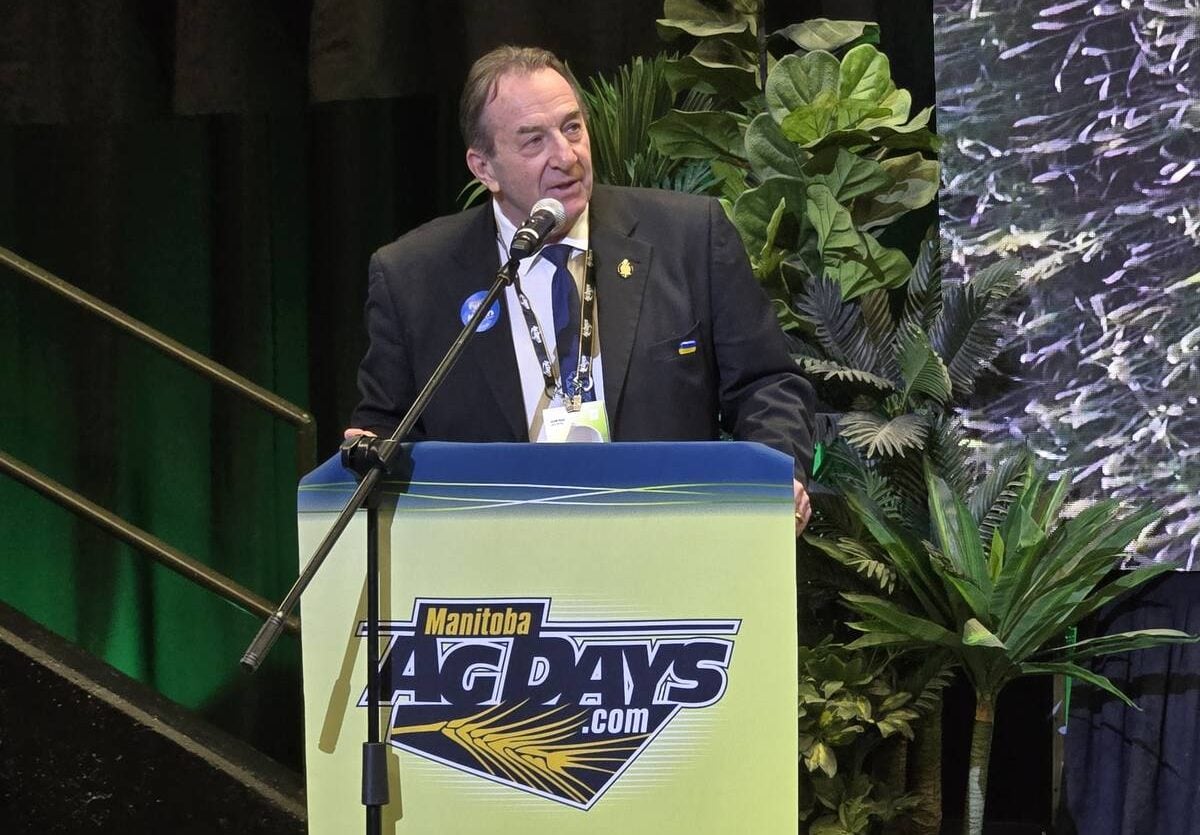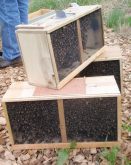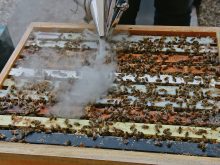Beekeepers have seen their honey supply dry up sooner than usual this year.
Ian Steppler, vice-chair of the Manitoba Beekeepers Association, said almost every honey producer he’s spoken to has had a shorter crop than usual this year — especially in the Interlake.
Steppler, who farms near Miami, said he usually has honey to late August or early September. This year he finished mid-month.
The early finish to the season may be tied to dry weather. Steppler said stressed crops don’t produce as much nectar.
Read Also

Manitoba crop insurance expands wildlife coverage, offers pilot programs
New crop insurance coverage is available to Manitoba farmers.
Near Fisher Branch, Paul Gregory said he’s had to begin feeding his bees already, which he attributed to dry conditions.
He said he’s seen a below-average honey crop, in part because the bees don’t have much second-crop alfalfa to feed on.
Steppler said fields in his area also seem to have fewer flowering weeds for bees to forage.
Despite the drawbacks, Steppler said this year has been a record honey crop, most of which was collected in July.
He attributed this to staggered seeding and reseeding of canola in his area, which spread the blooming period out to almost eight weeks. Timely rains and a hot July made for flourishing fields, and flowers that “gave nectar like crazy.”
“I’m very happy with my honey crop this year,” said Steppler.
He said there have also been more sunflowers planted in his area. “That helped me quite a bit when the canola stopped flowering.”
Gregory added that despite a lot of spraying for pests in his area, he hasn’t had any bees killed off.
He said he was “extremely proud” of his neighbouring farmers. He’s come to expect one or two moderate bee kills per year due to pesticide spraying.
Gregory attributed this success to farmers being more concerned for the environment and more careful in how they timed their spraying.
Steppler said his hives are in “terrific” shape for winter.
“We’re going to have to do a lot more feeding,” said Gregory, adding that since they’ve already begun feeding, he expects to feed 25 to 30 per cent more this year.


















